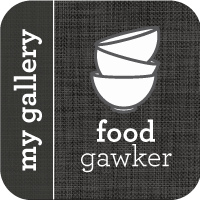On Traces
My Aunt Cheryl, who is an avid reader of this blog (hi Auntie Cheryl!), came to my rescue by sending me a recipe for Blintz Souffle from Marlene Sorosky's Cooking for Entertaining. What I particularly love about the recipe, aside from its obvious deliciousness, is that she sent me a pdf of the actual page from her copy of the cookbook -- stains, splatters, and all.
This may seem strange, but I feel like the recipe is going to be that much more tasty and special because it's been made so many times before by her (as is obvious by he well-loved appearance of the page). If you flip through the cookbooks in our kitchen, you can similarly tell how many times we've made a particular recipe by looking at the condition of the binding, the number of chocolate fingerprints or oil splotches, etc.
For some, the most valued books in their collection are those that are in pristine condition. I have a friend -- a literature professor and voracious reader -- who never marks up his books. In fact, he is careful to never even break the spine.
For me, however, a book doesn't become an object worth keeping unless it's written on, broken in, and dog-eared. Then it transforms from a mere thing to a repository of memories -- literally, a souvenir (French for "to remember"). Indeed, there's something so lovely about opening up a book and encountering an old version of yourself in it. Seeing the underlining, marginalia, and doodles reminds me that I've experienced this already before and that -- still -- the present encounter with the book is a new experience, a chance to go on a tangent, to learn something more, or simply to get reacquainted with an old friend.
Beyond that, though, a book with stains, marks, and tears is also a book that itself has a life, a past. Even if I wasn't the one to mark it up originally, I am nonetheless aware that the book has a history. And when I flip through its pages, it's reading me into a shared experience with others. So when I make the blintz recipe, it'll feel like my Aunt Cheryl and I were able to share in Yom Kippur together, even though she's far away in Canada.
This love of a book's traces is why I'm so reluctant to get a Kindle or rely on an eBook reader. It's also why I always keep print-outs of any online recipe I make.
What do your books -- cookbooks, fiction, etc. -- look like? Are you interested in the new and pristine or the old and weathered?
P.S. We were watching a new episode of "Hoarders" last night (I'm obsessed with that show), and it struck me that there's a fine line between my love of objects with history and the kind of fetishization that leads to hoarding. Perhaps the difference between the two is that hoarders fear that the memories will be lost without being associated with objects -- that by tossing a wrapper, you're throwing away the experience of sharing a snack with a loved one -- while "souveniring" (or whatever it is that I do) assumes that objects can accumulate experience, that not only do they bear traces of the past, they also can serve as portals to shared and future experiences? Or maybe we've all got a bit of a hoarding instinct inside of us, and it's just a matter of the degree to which we're able to control it or to channel it in healthier directions?













4 comments:
I have my BA in American Studies and there is a whole field within American Studies of food studies and one thing researchers do is study old cookbooks to analyze history. So when there are substitutions made or a note on where a recipe came from you can deduce a social history and an economic history on a personal scale. This is also very useful in women's history as in past historical document women were often left out.
@ bailie marie: That's awesome! My unfinished Ph.D. is in English, with a focus on American Studies as well.
O wow I love to find another American Studies person, it is such an amazing field with such little recognition. I would love to go back to school and pursue something in Library Studies but with a FI in school that will have to wait!
Wow have you read Marcel Proust or Henri Bergson? I'm doing my phd in English at the moment, and what you said really reminds me of these writers' works. Both Proust and Bergson believed that memory was locked in matter and unless you re-encounter that specific object, you will lose that memory forever. Hence the joy when Proust bites into the Madeleine and is instantly transported back to his childhood in the country...
Post a Comment